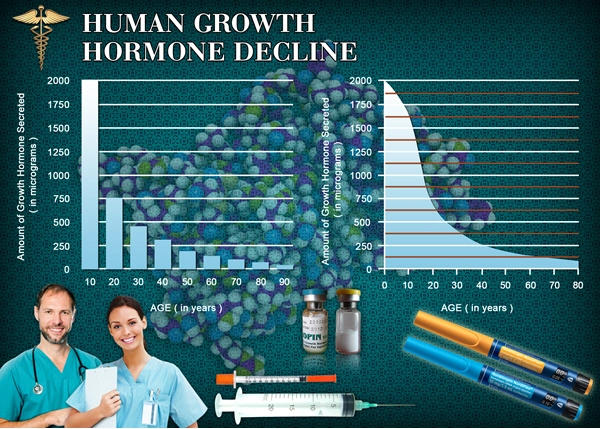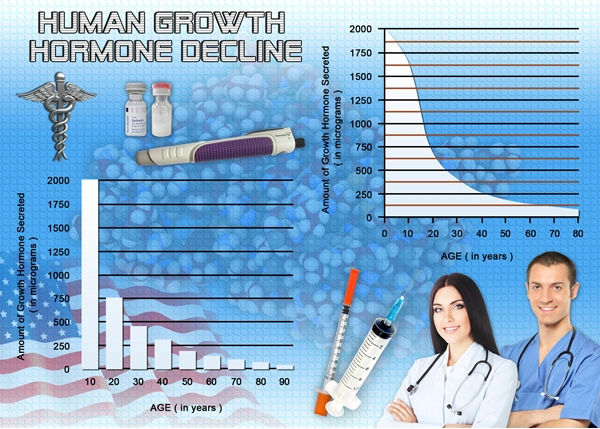
Introduction to Peptides and Diabetes
Diabetes, a chronic metabolic disorder characterized by high blood sugar levels, continues to be a significant global health issue. Recent advances in medical research have highlighted the potential of peptides in managing and potentially treating diabetes. Peptides, which are short chains of amino acids, the building blocks of proteins, have been found to play critical roles in various biological processes, including hormone regulation, cell signaling, and glucose metabolism.
Peptides in Glucose Regulation
One of the most promising areas of peptide research in diabetes management is their role in glucose regulation. Certain peptides are known to influence the activity of insulin, the hormone responsible for regulating blood glucose levels. For instance, incretin-based therapies, which involve peptides like GLP-1 (glucagon-like peptide-1), have been used to enhance insulin secretion in response to meals. GLP-1 not only stimulates insulin release but also suppresses glucagon secretion, which helps lower blood glucose levels postprandially (after eating).
Innovative Peptide Therapies for Diabetes
The development of peptide-based therapies has opened new avenues for diabetes treatment. These therapies aim to mimic or enhance the natural actions of peptides involved in glucose homeostasis. For example, GLP-1 receptor agonists, such as exenatide and liraglutide, have been approved for use in treating type 2 diabetes. These drugs enhance the GLP-1 effect, improving glycemic control and often leading to weight loss, which is a beneficial side effect for many patients with type 2 diabetes.
Another peptide of interest is amylin, which is co-secreted with insulin by pancreatic beta cells. Amylin analogs, like pramlintide, are used to supplement insulin therapy in both type 1 and type 2 diabetes, helping to control blood glucose levels by slowing gastric emptying and promoting satiety, thereby reducing postprandial glucose spikes.
Challenges and Future Directions
Despite the promising potential of peptides in diabetes treatment, there are several challenges to overcome. The stability and bioavailability of peptide drugs are major concerns, as peptides can be rapidly degraded in the gastrointestinal tract and have a short half-life. Advances in peptide engineering and drug delivery systems are crucial to enhance the stability and efficacy of these therapies.
Moreover, ongoing research is focused on discovering new peptides and understanding their mechanisms of action in greater detail. This could lead to the development of more effective and specific peptide-based treatments that can be tailored to individual patient needs.
Conclusion
In conclusion, peptides hold significant promise in the realm of diabetes management. Their ability to modulate critical pathways in glucose metabolism and insulin regulation can lead to more effective and personalized treatment options. However, further research and development are essential to overcome existing challenges and fully harness the therapeutic potential of peptides in combating diabetes. As science advances, the hope is that peptide-based therapies will become a cornerstone in the fight against this widespread disease, improving quality of life and outcomes for patients worldwide.

- Nicotinamide-N-methyltransferase (NNMT) Versus Its Inhibitor, a new way to promote weight loss? [Last Updated On: August 24th, 2025] [Originally Added On: May 27th, 2021]
- Ipamorelin: A Safe and Effective Alternative to HGH Injections [Last Updated On: May 29th, 2025] [Originally Added On: August 6th, 2021]
- Peptides: Unleashing Potential in Modern Medicine [Last Updated On: March 2nd, 2025] [Originally Added On: March 2nd, 2025]
- Exploring Peptide Therapy in Neurological Disorder Treatment [Last Updated On: March 4th, 2025] [Originally Added On: March 4th, 2025]
- Exploring Peptide-Based Immunotherapy: Advances and Challenges in Cancer Treatment [Last Updated On: March 5th, 2025] [Originally Added On: March 5th, 2025]
- Unlocking the Fountain of Youth: Exploring the Anti-Ageing Potential of Peptides [Last Updated On: March 6th, 2025] [Originally Added On: March 5th, 2025]
- Revolutionizing Men's Health: Peptide Therapeutics in Chronic Disease Management [Last Updated On: March 6th, 2025] [Originally Added On: March 6th, 2025]
- Antimicrobial Peptides: A Promising Solution for Men's Health Against Bacterial Infections [Last Updated On: March 7th, 2025] [Originally Added On: March 7th, 2025]
- Exploring the Frontier: The Evolving Role of Peptides in Allergy Treatment for American Males [Last Updated On: March 7th, 2025] [Originally Added On: March 7th, 2025]
- Peptides in Dermatology: Transforming Men's Skincare for Youthful Skin Health [Last Updated On: March 8th, 2025] [Originally Added On: March 8th, 2025]
- Revolutionizing Male Health: Harnessing Biomimetic Peptides for Regenerative Medicine Advancements [Last Updated On: March 9th, 2025] [Originally Added On: March 9th, 2025]
- Unlocking the Potential of Therapeutic Proteins and Peptides: Advances and Obstacles in Modern Medicine [Last Updated On: March 12th, 2025] [Originally Added On: March 12th, 2025]
- Peptides and Epigenetics: Impact on American Male Health and Disease [Last Updated On: March 13th, 2025] [Originally Added On: March 13th, 2025]
- Peptides Pioneering Personalized Medicine: A New Frontier for American Men [Last Updated On: March 13th, 2025] [Originally Added On: March 13th, 2025]
- Unveiling the Power of Peptides in Wound Healing and Tissue Repair for American Males [Last Updated On: March 15th, 2025] [Originally Added On: March 15th, 2025]
- Peptides and Gene Therapy: Revolutionizing Health for American Males [Last Updated On: March 17th, 2025] [Originally Added On: March 17th, 2025]
- Peptide Vaccines: A Promising Frontier for American Males' Health [Last Updated On: March 18th, 2025] [Originally Added On: March 18th, 2025]
- Peptide Therapies: A Promising Approach to Combat Obesity in American Males [Last Updated On: March 18th, 2025] [Originally Added On: March 18th, 2025]
- Peptides: A New Frontier in Managing Respiratory Health for American Males [Last Updated On: March 19th, 2025] [Originally Added On: March 19th, 2025]
- Peptide-Enhanced Stem Cell Therapies: Revolutionizing Health for American Males [Last Updated On: March 19th, 2025] [Originally Added On: March 19th, 2025]
- Peptides: A Promising Solution for Metabolic Disorders in American Males [Last Updated On: March 19th, 2025] [Originally Added On: March 19th, 2025]
- Peptides in Veterinary Medicine: Enhancing Animal Health and Performance [Last Updated On: March 20th, 2025] [Originally Added On: March 20th, 2025]
- Peptide Therapeutics: Revolutionizing Chronic Disease Management for American Males [Last Updated On: March 20th, 2025] [Originally Added On: March 20th, 2025]
- Peptides: Enhancing Health and Performance in American Males [Last Updated On: March 21st, 2025] [Originally Added On: March 21st, 2025]
- Peptides: Revolutionizing Men's Health in Muscle Growth, Anti-Aging, and More [Last Updated On: March 21st, 2025] [Originally Added On: March 21st, 2025]
- Peptides: A New Frontier in Fighting Infectious Diseases for American Males [Last Updated On: March 21st, 2025] [Originally Added On: March 21st, 2025]
- Peptides: Revolutionizing Diagnostics and Drug Delivery for American Males' Health [Last Updated On: March 22nd, 2025] [Originally Added On: March 22nd, 2025]
- Peptides Revolutionizing Eye Health Treatment for American Males [Last Updated On: March 22nd, 2025] [Originally Added On: March 22nd, 2025]
- Peptide Therapies: A New Frontier for Treating Rheumatic Diseases in American Males [Last Updated On: March 22nd, 2025] [Originally Added On: March 22nd, 2025]
- Peptides: A Promising Solution for Hair Loss in American Males [Last Updated On: March 23rd, 2025] [Originally Added On: March 23rd, 2025]
- Peptides in Endocrinology: Managing Diabetes, Growth Hormone, and Testosterone in American Males [Last Updated On: March 24th, 2025] [Originally Added On: March 24th, 2025]
- Bioactive Peptides: Enhancing Men's Health from Muscle to Cancer Prevention [Last Updated On: March 24th, 2025] [Originally Added On: March 24th, 2025]
- Peptides and Male Fertility: Exploring Therapeutic Potential and Future Directions [Last Updated On: March 24th, 2025] [Originally Added On: March 24th, 2025]
- Peptides' Role in Enhancing Liver Health for American Males: A Scientific Overview [Last Updated On: March 24th, 2025] [Originally Added On: March 24th, 2025]
- Peptide-Based HIV Vaccines: Progress and Promise for American Males [Last Updated On: March 24th, 2025] [Originally Added On: March 24th, 2025]
- Peptides: A New Frontier in Mental Health for American Males [Last Updated On: March 25th, 2025] [Originally Added On: March 25th, 2025]
- Peptide Therapies Revolutionizing Transplant Medicine for American Males [Last Updated On: March 25th, 2025] [Originally Added On: March 25th, 2025]
- Peptides Revolutionize Toxicology: Diagnostics, Therapeutics, and Vaccines for American Males [Last Updated On: March 25th, 2025] [Originally Added On: March 25th, 2025]
- Peptide Radiopharmaceuticals: Advancing Men's Health in Cancer and Cardiovascular Care [Last Updated On: March 25th, 2025] [Originally Added On: March 25th, 2025]
- Peptides: A Revolutionary Approach to Cardiovascular Health for American Men [Last Updated On: March 25th, 2025] [Originally Added On: March 25th, 2025]
- Peptides: Enhancing Gut Health and Well-being in American Males [Last Updated On: March 25th, 2025] [Originally Added On: March 25th, 2025]
- Peptide-Based Biomarkers: Revolutionizing Disease Detection in American Males [Last Updated On: March 25th, 2025] [Originally Added On: March 25th, 2025]
- Peptides Revolutionizing Dentistry: Benefits for American Men's Oral Health [Last Updated On: March 25th, 2025] [Originally Added On: March 25th, 2025]
- Peptides Offer Hope for American Males with Neuropathic Pain: Recent Research Insights [Last Updated On: March 25th, 2025] [Originally Added On: March 25th, 2025]
- Peptides Revolutionizing Sports Medicine: Enhancing Performance and Recovery in Athletes [Last Updated On: March 25th, 2025] [Originally Added On: March 25th, 2025]
- Peptide-Enriched Skincare: Benefits and Advances for American Males [Last Updated On: March 25th, 2025] [Originally Added On: March 25th, 2025]
- Peptide Therapeutics: Targeted Hope for American Males with Rare Diseases [Last Updated On: March 26th, 2025] [Originally Added On: March 26th, 2025]
- Peptide Drugs in Pediatrics: Targeted Treatments for American Males' Children [Last Updated On: March 26th, 2025] [Originally Added On: March 26th, 2025]
- Stem Cells and Peptides: Revolutionizing Regenerative Medicine for American Males [Last Updated On: March 26th, 2025] [Originally Added On: March 26th, 2025]
- Peptides Revolutionizing Trauma Care: From Hemostasis to Neuroprotection [Last Updated On: March 26th, 2025] [Originally Added On: March 26th, 2025]
- Peptide Nanotechnology: Revolutionizing Cancer, Heart Disease, and Diabetes Treatment for American Males [Last Updated On: March 26th, 2025] [Originally Added On: March 26th, 2025]
- Peptides Enhance Photodynamic Therapy: A Promising Treatment for American Men's Health [Last Updated On: March 26th, 2025] [Originally Added On: March 26th, 2025]
- Peptide Vaccines: Revolutionizing Disease Prevention in Veterinary Medicine [Last Updated On: March 26th, 2025] [Originally Added On: March 26th, 2025]
- Peptides in Stroke Recovery: Potential and Challenges for American Males [Last Updated On: March 27th, 2025] [Originally Added On: March 27th, 2025]
- Peptide Bioinformatics: Revolutionizing Precision Medicine for American Males [Last Updated On: March 27th, 2025] [Originally Added On: March 27th, 2025]
- Peptide Therapies: Revolutionizing Gastrointestinal Health for American Males [Last Updated On: March 27th, 2025] [Originally Added On: March 27th, 2025]
- Peptides in Epilepsy: New Hope for American Males' Treatment and Management [Last Updated On: March 28th, 2025] [Originally Added On: March 28th, 2025]
- Peptide-Based Biosensors: Revolutionizing Early Disease Detection in American Males [Last Updated On: March 28th, 2025] [Originally Added On: March 28th, 2025]
- Peptides: A Promising Solution to Antibiotic Resistance in American Males [Last Updated On: March 28th, 2025] [Originally Added On: March 28th, 2025]
- Peptide Therapy: A New Hope for American Men with Neurodegenerative Diseases [Last Updated On: March 28th, 2025] [Originally Added On: March 28th, 2025]
- Peptide Therapies: Enhancing Bone Health in American Males [Last Updated On: March 28th, 2025] [Originally Added On: March 28th, 2025]
- Peptides: A Targeted Approach to Managing Inflammation in American Males [Last Updated On: March 28th, 2025] [Originally Added On: March 28th, 2025]
- Peptide Therapy: A New Hope for American Males with Hematological Disorders [Last Updated On: March 29th, 2025] [Originally Added On: March 29th, 2025]
- Peptide-Based Anti-venoms: Revolutionizing Snakebite Treatment for American Males [Last Updated On: March 29th, 2025] [Originally Added On: March 29th, 2025]
- Peptide-Polymer Composites: Revolutionizing Targeted Therapy for American Males [Last Updated On: March 29th, 2025] [Originally Added On: March 29th, 2025]
- Peptides as Cell-Penetrating Agents: Revolutionizing Men's Health Treatments [Last Updated On: March 30th, 2025] [Originally Added On: March 30th, 2025]
- Peptides in Burn Wound Management: Healing and Scar Reduction for American Males [Last Updated On: April 1st, 2025] [Originally Added On: April 1st, 2025]
- Peptide Drug Conjugates: Revolutionizing Targeted Therapy for American Men's Health [Last Updated On: April 1st, 2025] [Originally Added On: April 1st, 2025]
- Peptides in Managing Acute Kidney Injury: Benefits and Challenges for American Males [Last Updated On: April 2nd, 2025] [Originally Added On: April 2nd, 2025]
- Peptides in Substance Abuse Treatment: Mechanisms, Applications, and Future Prospects [Last Updated On: April 2nd, 2025] [Originally Added On: April 2nd, 2025]
- Peptides: A Promising Treatment for Ocular Infections in American Males [Last Updated On: April 5th, 2025] [Originally Added On: April 5th, 2025]
- Peptide Therapies: A New Frontier in Treating Osteoporosis in American Males [Last Updated On: April 6th, 2025] [Originally Added On: April 6th, 2025]
- Peptide Therapies: A New Frontier in Prostate Cancer Treatment [Last Updated On: April 8th, 2025] [Originally Added On: April 8th, 2025]
- Peptide Therapy: A New Hope for Autoimmune Diseases in American Males [Last Updated On: April 8th, 2025] [Originally Added On: April 8th, 2025]
- Peptides in Geriatric Medicine: Enhancing Muscle, Cognitive, and Metabolic Health in Aging Males [Last Updated On: April 8th, 2025] [Originally Added On: April 8th, 2025]
- Peptide Therapy: Enhancing Post-Operative Recovery for American Males [Last Updated On: April 9th, 2025] [Originally Added On: April 9th, 2025]
- Peptide Therapy: A Promising New Approach to Treating Depression in American Men [Last Updated On: April 9th, 2025] [Originally Added On: April 9th, 2025]
- Peptide Therapies: Revolutionizing Genetic Disorder Treatment for American Males [Last Updated On: April 11th, 2025] [Originally Added On: April 11th, 2025]
- Peptides in Veterinary Dermatology: Promises, Challenges, and the American Male Perspective [Last Updated On: April 11th, 2025] [Originally Added On: April 11th, 2025]
- Peptides: A New Frontier in Treating Male Infertility [Last Updated On: April 11th, 2025] [Originally Added On: April 11th, 2025]



List of USA state clinics - click a flag below for blood testing clinics.
Word Count: 470


















































